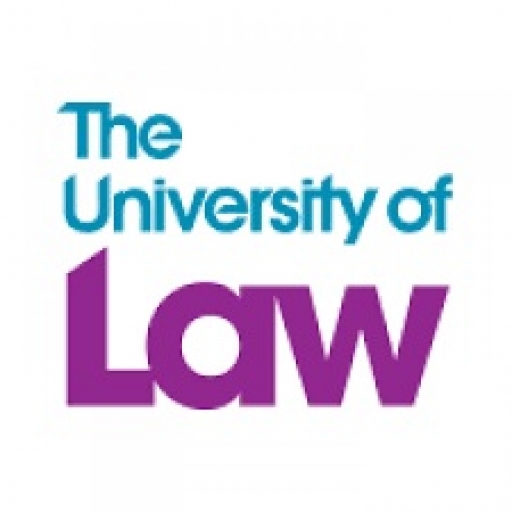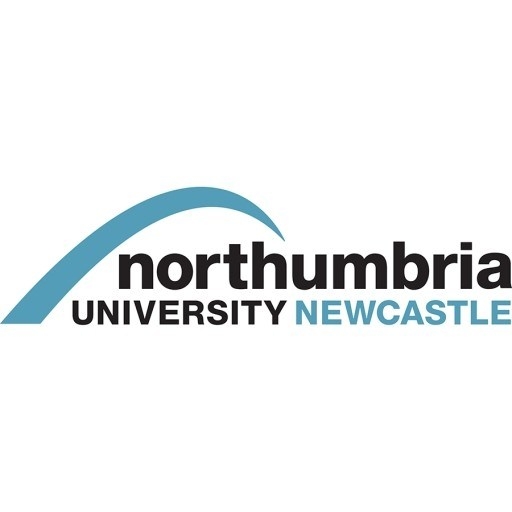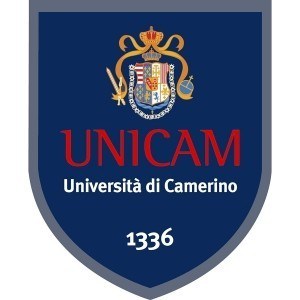Photos of university / #universitycollegecork
The Bachelor of Science (Applied Science) in Analysis of Pharmaceutical Compounds at University College Cork is a comprehensive undergraduate program designed to equip students with the essential knowledge and practical skills necessary for a successful career in the pharmaceutical and biotechnological industries. This programme focuses on the scientific principles underpinning the analysis and characterization of pharmaceutical compounds, providing students with a thorough understanding of modern analytical techniques, laboratory practices, and quality assurance processes vital for the development, manufacture, and regulation of pharmaceutical products.
Throughout this course, students will explore various aspects of pharmaceutical chemistry, including the chemistry of active pharmaceutical ingredients, formulation technology, and the analytical methods used to assess purity, stability, and bioavailability. The curriculum includes coursework in chemistry, biology, and instrumentation, combined with extensive laboratory training that emphasizes hands-on experience with high-precision equipment such as chromatography systems, spectrometry tools, and spectroscopic techniques. Emphasizing scientific rigor and attention to detail, the program prepares graduates to meet industry standards and regulatory requirements in pharmaceutical analysis.
The programme also covers important areas such as pharmaceutical regulation, Good Manufacturing Practices (GMP), and Good Laboratory Practices (GLP), ensuring that students are well-versed in industry compliance standards. Furthermore, students will have opportunities for industry placements and research projects, allowing them to apply their knowledge in real-world settings, collaborate with industry professionals, and develop valuable professional networks.
Graduates of this programme are prepared for employment in a variety of roles including analytical chemists, quality control analysts, regulatory affairs specialists, and research scientists within pharmaceutical companies, contract research organizations, and regulatory agencies. With the increasing demand for skilled professionals capable of ensuring the safety, efficacy, and quality of pharmaceutical products, this degree offers excellent career prospects and the opportunity to contribute significantly to public health through meticulous pharmaceutical analysis and development.
The programme’s faculty comprises experienced researchers and industry practitioners who combine academic excellence with practical insights. Students benefit from state-of-the-art laboratory facilities and a supportive learning environment that promotes innovation, critical thinking, and professional development. Whether aiming for a career in pharmaceutical research, quality assurance, or regulatory affairs, students graduating from this programme will possess a strong foundation in analytical science, making them highly competitive in the dynamic and expanding pharmaceutical sector.
The Bachelor of Science in Applied Science (Analysis of Pharmaceutical Compounds) at University College Cork is a comprehensive program designed to prepare students for a dynamic career in pharmaceutical analysis and related fields. This program combines theoretical knowledge with practical skills, emphasizing the analysis, identification, and quantification of pharmaceutical compounds. Students will explore essential principles of chemistry, biochemistry, and pharmacology, equipping them with a solid scientific foundation necessary for success in the pharmaceutical industry.
Throughout the course, students will engage in a variety of modules covering analytical techniques such as chromatography, spectroscopy, and mass spectrometry. These modules are complemented by laboratory sessions that offer hands-on experience, enabling students to develop proficiency in the operation of analytical instruments and data interpretation. The curriculum also emphasizes Good Laboratory Practice (GLP) standards, regulatory requirements, and quality control procedures crucial in pharmaceutical development and manufacturing.
The program places a strong focus on research methods and experimental design, encouraging students to undertake independent projects that foster critical thinking and problem-solving skills. Additionally, students will learn about the drug development process, including aspects of formulation, stability testing, and validation of analytical methods. Industry-relevant topics such as safety regulations, ethical considerations, and intellectual property rights are integrated into the coursework to prepare graduates for professional environments.
Partnerships with pharmaceutical companies and research institutions provide opportunities for internships and industry placements, allowing students to gain real-world experience and build professional networks. Graduates of this program will be well-equipped to pursue careers in pharmaceutical analysis, quality assurance, regulatory affairs, and research and development sectors. They will also possess the necessary skills to contribute to advancements in pharmaceutical sciences, ensuring the safety, efficacy, and quality of medicinal products.
In summary, the Applied Science (Analysis of Pharmaceutical Compounds) program at University College Cork offers an in-depth curriculum that combines scientific theory with practical application, preparing students for a successful career in the pharmaceutical industry and beyond.
For admission into the Bachelor of Science in Applied Science (Analysis of Pharmaceutical Compounds) at University College Cork, applicants are generally required to have completed second-level education with a focus on Science subjects including Chemistry and Biology. A minimum grade requirement, such as a specific Leaving Certificate tariff, is typically specified, and applicants with qualifications equivalent to the Irish Leaving Certificate are considered on a competitive basis. Relevant prior learning, such as subjects related to Chemistry, Biology, or Pharmaceutical Sciences, enhances application competitiveness. While specific academic thresholds are detailed on the university's official admissions pages, the program generally emphasizes the importance of strong analytical, laboratory, and scientific skills demonstrated through relevant coursework or work experience.
English language proficiency is mandatory for non-native speakers, with accepted tests such as IELTS or TOEFL meeting specified score requirements. Additionally, applicants might need to submit personal statements outlining their interest in pharmaceutical sciences, along with references or letters of recommendation demonstrating academic or professional suitability. Certain programs may also require background knowledge or experience in laboratory techniques, chemistry, or related fields, which can be demonstrated through coursework, internships, or work experience.
Candidates with prior higher education or relevant professional qualifications might be considered through a recognition of prior learning process, which assesses the equivalence of previous studies or experience to program prerequisites. The university encourages prospective students to verify the specific admission criteria annually via official channels, as requirements may be updated. Additionally, some programs may conduct interviews or assessments to evaluate the applicant's motivation and suitability for the course.
There are also specific entry pathways for mature students or those with alternative qualifications, which involve a case-by-case assessment of their prior learning and relevant experience. Applicants should ensure they submit all required documentation, including transcripts, proof of qualifications, test scores, and any other relevant materials by the designated application deadline to be considered for admission. Finally, meeting the minimum requirements does not guarantee admission, as selection is often competitive and based on overall applicant pool strength.
The financing of the Applied Science (Analysis of Pharmaceutical Compounds) program at University College Cork is structured to support both domestic and international students through a combination of scholarships, grants, and funding opportunities. Tuition fees are set annually and vary depending on the student’s residence status and level of study. For EU students, tuition fees are generally lower compared to non-EU students, reflecting the university’s commitment to accessible education within Ireland and the European Union. The university offers a range of scholarship programs aimed at reducing the financial burden on students. These scholarships are awarded based on academic merit, research potential, or financial need, and include both merit-based awards and need-based grants.
Furthermore, students are encouraged to explore external funding opportunities such as government grants, research councils, and pharmaceutical industry sponsorships. The Irish government provides various funding schemes for postgraduate students, which can be accessed through the Irish Research Council or similar bodies. Eligible students may also benefit from loans, installment payment plans, or part-time work options facilitated by the university’s career services. The university maintains a dedicated financial aid office that provides guidance on application procedures for scholarships and grants, as well as budgeting advice for students living and studying in Cork. Additionally, the university regularly updates its funding opportunities and collaborates with industry partners to create funded research projects and internships, offering financial support and practical experience to students.
In terms of financial planning, students are advised to consider accommodation costs, living expenses in Cork, study materials, and health insurance, especially for international students. The university’s official website provides detailed information on estimated costs and available financial support mechanisms, ensuring students can plan their finances accordingly. Overall, University College Cork’s financial support system aims to make the program accessible and affordable, promoting diversity and excellence in their academic community.
The Bachelor of Science (BSc) in Applied Science with a specialization in Analysis of Pharmaceutical Compounds at University College Cork is a comprehensive undergraduate program designed to equip students with core knowledge and practical skills relevant to the pharmaceutical and biotechnological industries. The curriculum emphasizes the fundamental principles of chemistry, biology, and pharmaceutical sciences, combined with hands-on laboratory work, to prepare graduates for a range of careers in drug analysis, quality control, and research and development. Throughout the program, students gain a solid understanding of analytical techniques such as chromatography, spectrometry, and microscopy, essential tools used in the identification and quantification of pharmaceutical compounds. The program fosters a strong foundation in scientific methodology, critical thinking, and problem-solving, enabling graduates to adapt to rapidly evolving industry standards and technological advancements.
In addition to technical coursework, students benefit from industry placements, collaborative projects with research institutions, and access to state-of-the-art laboratories. These practical components provide real-world experience and professional networking opportunities, enhancing employability upon graduation. The program also places significant emphasis on regulatory affairs, good laboratory practices, and safety procedures in pharmaceutical environments, which are crucial for maintaining compliance standards in the industry. The integration of theory and practice prepares students for diverse career paths including roles in pharmaceutical quality assurance, regulatory compliance, research, and development laboratories.
Post-graduation, many students pursue further studies or specialized training in pharmaceutical sciences, analytical chemistry, or related fields. The program is supported by experienced faculty members who are actively engaged in research, contributing to the ongoing development of innovative analytical techniques. Located in Cork, a vibrant city with a strong pharmaceutical sector, the university offers students proximity to major industry players, facilitating internships and employment opportunities. Overall, this program aims to develop highly skilled graduates capable of contributing to advancements in pharmaceutical analysis and improving public health outcomes through high-quality scientific work.








